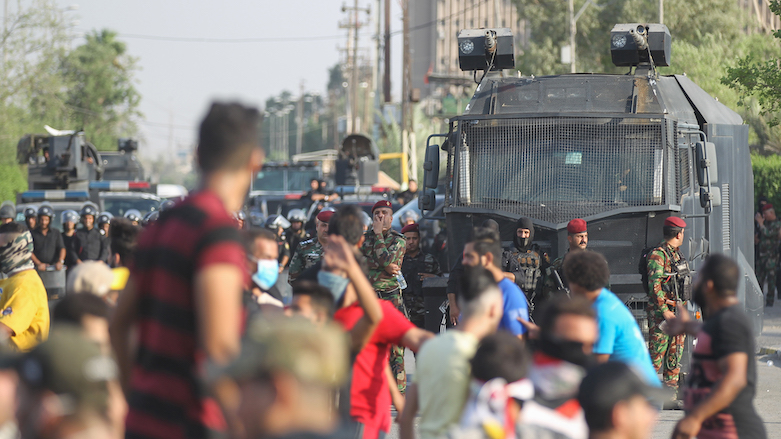EU calls on Iraq’s security forces to exercise restraint following the death of protestors

ERBIL (Kurdistan 24) – The European Union on Thursday called on Iraqi security forces to exercise maximum restraint in the handling of the anti-corruption protests following the death of dozens of protestors.
“In this context, the EU expects the Iraqi security forces to exercise maximum restraint in the handling of the protests, and protesters to keep protests peaceful,” the EU spokesperson said in a statement.
The EU also welcomed Iraqi Prime Minister Adil Abdul Mahdi’s statement, “affirming the right to peacefully protest and freedom of expression, while acknowledging the protestors’ legitimate demands,” noting it “goes in the right direction.”
On Wednesday, Abdul Mahdi declared a curfew in the capital of Baghdad where the protests began. The Iraqi government has also reportedly cut internet access and blocked social media applications.
David M. Witty, an adjunct professor at Norwich University, told Kurdistan 24 he thought these protests would happen over the summer, like the anti-corruption protests in Basra in 2018. “But, they did not.”
He said the protests began after the Iraqi government removed a commander for the Iraqi counter-terrorism forces, Abdul-Wahab al-Saadi.
“The protests would have happened sooner or later, but Saadi might have been the spark that started them this time,” Witty said.
According to Iraqi media reports on Wednesday, Iraq’s prime minister said he is ready for dialogue with protestors to end the political crisis after the third day of anti-government demonstrations in Baghdad and other cities across southern Iraq.
However, Witty said such a move was unlikely because those who are protesting “want [Abdul Mahdi] gone.”
“This could turn into an Egypt-like situation,” he added.
Meanwhile, the EU said it supports the launch of an investigation into the events, “which needs to be credible and swift.”
Iraqi political scientist Harith Hasan al-Qarawee wrote on Twitter that although Abdul Mahdi “should not be blamed for the structural problems that led to this wave of Iraq protests, he is no longer in a position to respond constructively to them.”
“He represents an unhelpful combination,” Qarawee argued.
Massive demonstrations took place in the Iraqi capital of Baghdad on Tuesday and continued until Thursday across several provinces, with protestors demanding job opportunities, improved public services, and an end to institutional corruption.
According to the crisis cell office of the United Nations High Commissioner for Human Rights (OHCHR) in Iraq, 19 individuals have died so far, while 1,041 have been injured.
“The events in Iraq are further evidence of the urgency to meet the needs and aspirations of the Iraqi people, in particular through credible and effective economic reforms,” the EU statement said, adding it “stands ready to support efforts in this regard.”
Editing by Karzan Sulaivany
